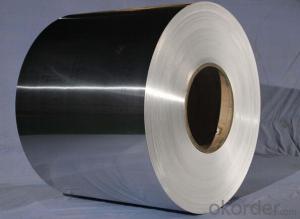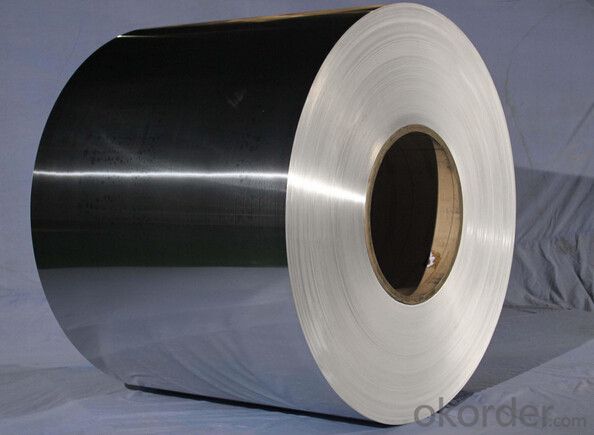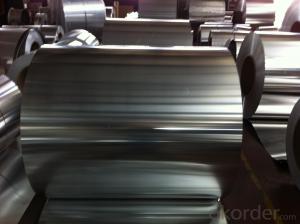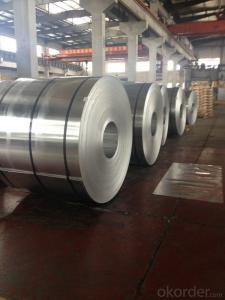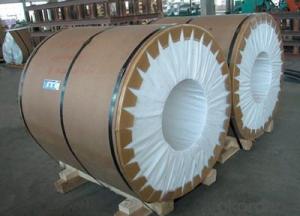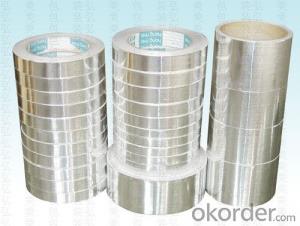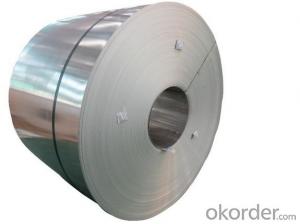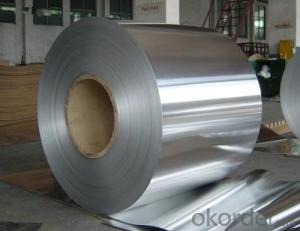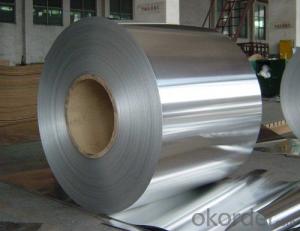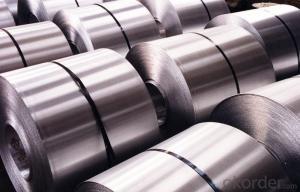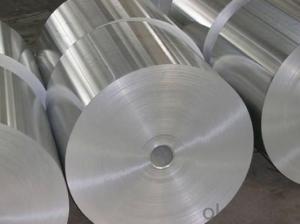Copper Penny Aluminum Coil for Aluminium Composite Panel
- Loading Port:
- Shanghai
- Payment Terms:
- TT OR LC
- Min Order Qty:
- 5 m.t.
- Supply Capability:
- 60000 m.t./month
OKorder Service Pledge
OKorder Financial Service
You Might Also Like
Specification
Mill Finished Aluminium Coil For Aluminium Composite Panel
Description
Alloy | 1060, 1100, 3003, 8011, etc. |
Temper | H16, H18, H24, H26, H28 |
Thickness | From 0.05mm to 3.0mm |
Width | Standard width:1240mm |
Special width:1300mm, 1520mm, 1570mm, 1595mm | |
Diameter | Standard dia:1200mm |
Interior dia:150mm,405mm,505mm | |
Weight | 2.5 T/coil,3.0 T/coil |
Coating | PE, PVDF, ACRYLIC |
Surface | Embossed, mill finish, coated |
Color | AS to code RAL |
Gloss | 10-90%(EN ISO-2813:1994) |
Coating Thickness | PE: more than 18 micron |
PVDF: more than 25 micron | |
Coating Hardness(pencil resistance) | More than 2h |
Coating adhesion | 5J (EN ISO-2409:1994) |
Impact Resistance | No peeling or cracking(50 kg/cm,ASTMD-2794:1993) |
Flexibility(T-bend) | 2T |
MEK resistance | More than 100 |
Advantage | 1.High temperature resistant 2.Weathering resistant 3.Scrubbing resistant 5.Acid or alkali proof 6. Fireproof 7.Light weight material is easy to construct and install |
Out package | Wooden splint with export standard |
Application | ACP, wall cladding, facades, roofs and canopies, ceilings, signboards, blind window, display platforms, electrical panels, etc |
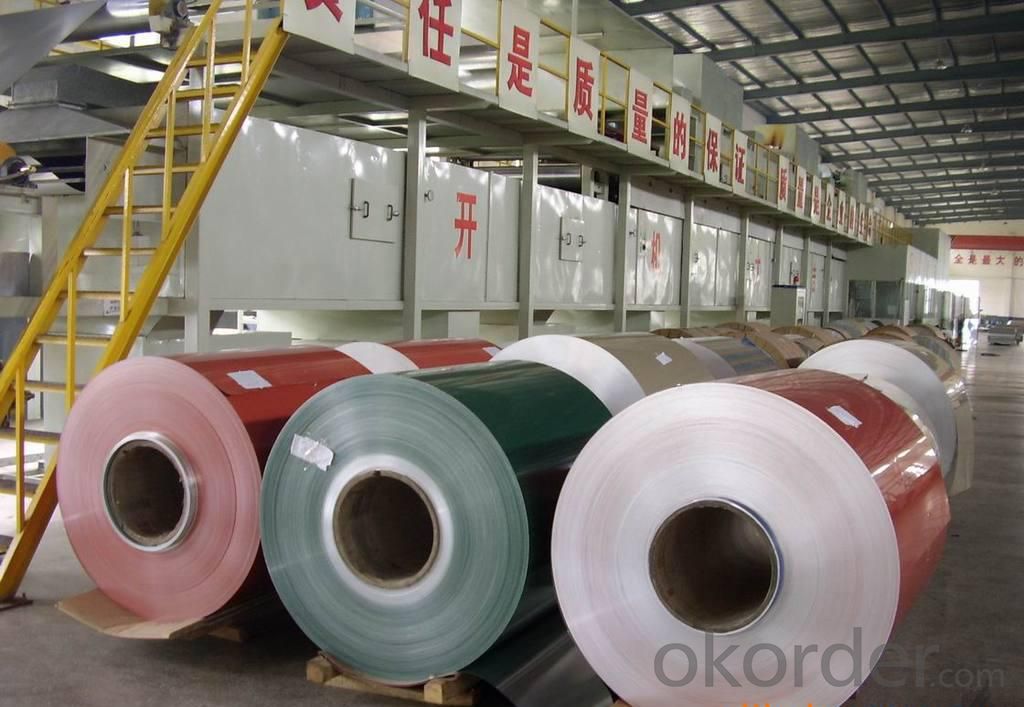
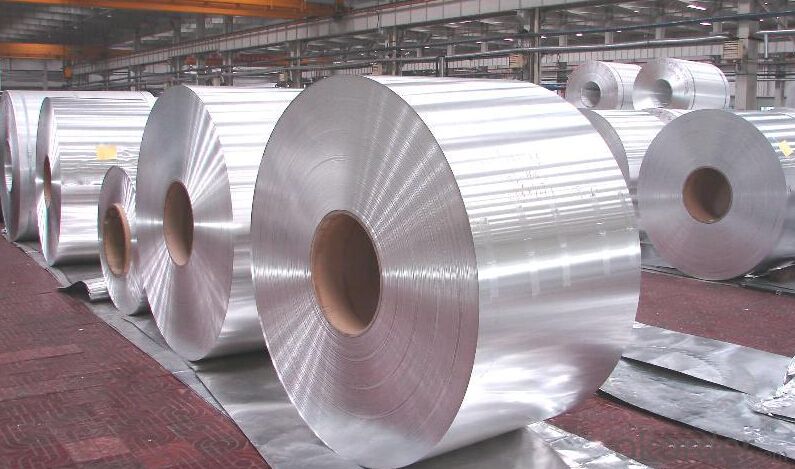
FAQ
--Q: Do you provide free samples?
--A: Yes, free samples will be sent to you on freight at destination.
--Q: Can I get your latest products catalogue?
--A: Yes, it will be sent to you in no time.
--Q: What is the MOQ?
--A: 2 tons
--Q: What are your payment terms?
--A: We accept L/C, T/T.
--Q: What kinds of alloy can you supply?
--A: 1000 series: 1050, 1060, 1070, 1100, 1145, 1200
3000 series: 3003, 3004, 3105, 3104
5000 series: 5052, 5083, 5754, 5182
6000 series: 6061, 6063, 6062, 6063
8000 series: 8011, 8021
--Q: What kinds of temper can you supply?
--A: O-H112: O,H12,H14,H16,H18,H22,H24,H26,H,32,H34,H111,H112
T3, T4, T6
- Q: Are aluminum coils suitable for corrosion-resistant applications?
- Yes, aluminum coils are suitable for corrosion-resistant applications. Aluminum has a natural oxide layer that forms on its surface, which provides excellent corrosion resistance. This oxide layer acts as a barrier, protecting the underlying aluminum from corrosion caused by moisture, chemicals, and other environmental factors. Additionally, aluminum can be further enhanced with various coatings or treatments to improve its corrosion resistance even more. Therefore, aluminum coils are commonly used in applications where resistance to corrosion is crucial, such as in the construction industry, automotive industry, and marine applications.
- Q: Are aluminum coils compatible with other materials?
- Yes, aluminum coils are compatible with other materials. Aluminum is a versatile and widely used material that can be easily integrated with various other materials in different applications. For example, aluminum coils can be used in conjunction with copper tubing in air conditioning and refrigeration systems to enhance heat transfer efficiency. Additionally, aluminum coils can be coated or laminated with other materials such as polymers or paints to provide additional protection against corrosion, improve aesthetics, or enhance specific performance characteristics. Therefore, aluminum coils offer compatibility with a range of materials, making them suitable for diverse applications in industries such as construction, automotive, aerospace, and more.
- Q: Why do the layers loose when taking out coil after roll of aluminum 0.14?
- After rolling, the most possible reason may be poor deoiling effect. I think, for 0.14mm aluminum coil, the lining sleeve will not be forgotten. After rolling , oil ooze from aluminum layers, and the support of aluminum coil is not enough, leading to coil collapsing. The specific manifestations are that the edges of even round aluminum layers become like water ripple, and that the aluminum coils suddenly become uneven when taking out coil.
- Q: Are aluminum coils applicable in the manufacturing process of automobiles?
- <p>Yes, aluminum coils are widely used in automobile manufacturing. They are utilized in various components such as engine parts, body panels, and wheels due to their lightweight, corrosion resistance, and strength. Aluminum's recyclability and energy efficiency also make it an environmentally friendly choice for the automotive industry.</p>
- Q: aluminium plate - 1800mm x 950mm x 1.5mmprocesses - i) sandblasting ii) polyethylene coating iii) matt blastingWhy does aluminium plate warp after the first process?How to prevent warping? Other than increasing material thickness (weight issue)
- Cold rolled aluminium may get stress relieved by sand-blasting and thus get warped. Normally warping should not take place if sand blasting is done on both sides. Another potential reason could be lack of adequate support for the plate during blasting. Check out these factors and take corrective action.
- Q: This question asks for methods to take care of and preserve aluminum coils, ensuring their longevity and functionality.
- <p>To maintain aluminum coils, follow these steps: Keep them clean by wiping off any dust or debris. Store them in a dry environment to prevent corrosion. Avoid stacking heavy objects on top to prevent deformation. Regularly inspect for any signs of damage or wear. Use appropriate handling equipment to avoid scratches or dents. Apply a protective coating if exposed to harsh conditions. Ensure proper ventilation during storage to prevent condensation. By following these practices, you can prolong the life and maintain the quality of aluminum coils.</p>
- Q: How do aluminum coils compare to copper coils in terms of conductivity?
- The conductivity properties of aluminum coils and copper coils differ. Copper is renowned for its exceptional electrical conductivity, making it the preferred option for applications where maximum efficiency is vital, like electrical wiring and motor windings. In comparison, copper coils possess a considerably higher electrical conductivity than aluminum coils. Consequently, copper coils can transmit electricity more efficiently, resulting in decreased power losses and enhanced overall performance. Conversely, aluminum coils exhibit lower electrical conductivity when compared to copper coils. Although aluminum is still a capable conductor of electricity, it is not as efficient as copper. This implies that aluminum coils may experience increased power losses and reduced efficiency in contrast to their copper counterparts. Nevertheless, aluminum coils possess their own advantages in certain applications, such as being lighter and more cost-effective. Ultimately, the choice between aluminum and copper coils hinges on the specific requirements of the application, with copper being favored for its superior conductivity properties.
- Q: Are aluminum coils easy to bend and shape?
- Yes, aluminum coils are relatively easy to bend and shape due to their malleability and ductility.
- Q: I am writing a science-fiction story, and I am planning on making Aluminum this ultra-valuable element (Which adds irony - Aluminum is the third most abundant element on Earth!) Even if ol' atomic no. 13 is as common throughout the universe as it is on Earth, I can bring up 'multiverse' to get away with it. I think it'd still be nice to know.
- Interesting, the aluminum must flow? Aluminum is not as common as other elements. It is not readily produced in the cores of stars through the alpha-capture process (which produces things like carbon, oxygen, neon, magnesium, silicon, etc.). This means it is only produced via supernova explosions. The table in Wikipedia (see link below) will give you an idea of the relative abundance to other elements. (Notice that magnesium and silicon, which are before and after aluminum, are nearly 100 times more abundant). As a fellow, Sci-Fi enthusiast, I'd remind you to make you're story believable. If you decide that your universe won't have supernovae, remember that would mean there would be no iron, gold, uranium, etc. My answer has been long enough, but I'm sure you have an idea why aluminum is so abundant on the Earth's crust so I'll stop here.
- Q: Are there any limitations on the welding or soldering of aluminum coils?
- Welding or soldering aluminum coils comes with limitations. Aluminum is a reactive metal with a low melting point, making it more challenging to weld or solder compared to other metals. One limitation is the formation of oxide layers on the aluminum surface, which prevents strong bonding during the welding or soldering process. These oxide layers must be removed beforehand, either through chemical cleaning agents or mechanical methods like abrasive cleaning. Another limitation is aluminum's high thermal conductivity, which leads to rapid heat dissipation. This makes it difficult to reach and maintain the necessary temperature for welding or soldering. Overcoming this limitation may require specialized techniques and equipment, such as high-frequency welding or preheating the aluminum. Moreover, aluminum is prone to deformation or warping under high temperatures. This can cause distortion or changes in the coil's shape during welding or soldering. To minimize this, proper clamping or fixturing techniques are often necessary. Furthermore, using filler materials in welding or soldering aluminum coils can be challenging. Aluminum has a relatively high thermal expansion coefficient, meaning it expands and contracts significantly with temperature changes. If the filler material doesn't have a similar expansion coefficient, it can lead to cracks or weak joints. To address this, specialized filler materials like aluminum-silicon alloys are commonly used. In conclusion, while it is possible to weld or solder aluminum coils, it requires specialized knowledge, techniques, and equipment to overcome the limitations posed by the metal's reactivity, heat dissipation, deformation, and filler material selection.
Send your message to us
Copper Penny Aluminum Coil for Aluminium Composite Panel
- Loading Port:
- Shanghai
- Payment Terms:
- TT OR LC
- Min Order Qty:
- 5 m.t.
- Supply Capability:
- 60000 m.t./month
OKorder Service Pledge
OKorder Financial Service
Similar products
Hot products
Hot Searches
Related keywords
